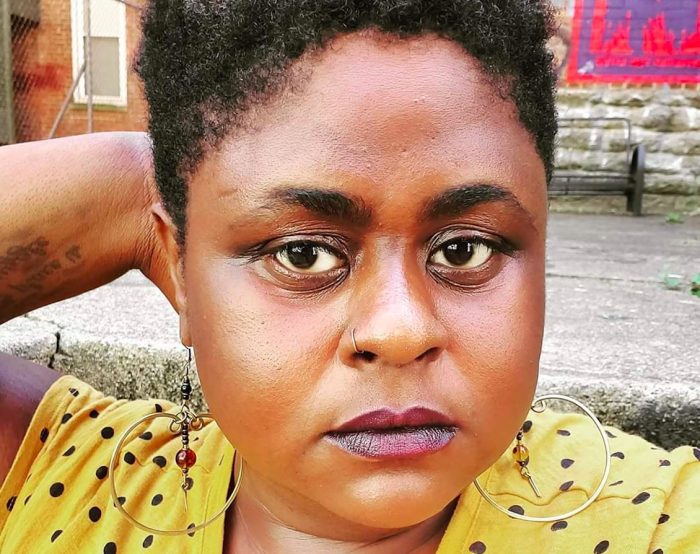A worthwhile read: Hey America, I Can’t Breathe.
I have always befriended older women.
Decades older than me. When I was in my teenage years, my close friend was my neighbor—a grandmother raising a second generation of her bloodline. I would often sit on her porch and listen to the intimate aspects of her life journey. I can still remember her debriefing some part of her day and often ended it by saying, “my nerves are bad” while dipping her snuff.
“My nerves are bad,” was a reoccurring saying that I often heard in my rural town of Franklin, Virginia. It was usually uttered by an adult in the community when grief or bad news would travel their way. A person being imprisoned, strife at work, or a philandering spouse. I would often witness these “bad nerves” manifest in the repetitive forms of eye twitching, twisting of hands, and body rocks. A cigarette, a cold beer, or the need to lay down, were often the treatment for these “bad nerves.”
It wasn’t until I went off to college, and I started to hear people use terms like “anxiety“ and “acute stress” that I began to make the association between these disorders with the “bad nerves” I often heard in my childhood.
In college, I would find that my peers who were overwhelmed with the daily struggles of collegiate life would seek out the therapeutic services provided on campus and, at times, be prescribed medication to regulate their symptoms.
However, no one in my hometown went to therapy. There wasn’t a mental health professional around to help others work on building coping mechanisms and managing daily life. “Bad nerves” had become a common thing in Black life. It was an expression of emotions for someone undergoing distress. I can still hear the people in my family and community, saying, “you know I got bad nerves!”
Since Black people were forced onto American’s soil, we were put into stressful situations. Stress has often been the precursor to anxiety. From slavery to the constant violence heaped upon Black bodies, to just trying to manage one’s own daily life under race, class, and gender or sexual oppression, Black people have a long generational and antiquated history of being forced under stressful situations.
A major component of stress is the feeling of not having control over one’s life. Imagine existing in this world, working hard every day of your life, taking care of your family, and having structural forces preventing you from moving forward—having to face acts of police brutality, mass incarceration, and systematic inequality, daily. That’s the day-to-day reality for many Black folks.
But like many things that Black people come up against, we did not have the names to what we were experiencing. I would come to understand later that you have to name things in order to work on them. Bad nerves are the symptoms—stress and anxiety is the disorder.
Anxiety is the most common mental health disorder in the United States and impacts African Americans at a higher rate than any other group; African Americans are more likely to have higher levels of chronic stress.
As a mental health professional, I have witnessed both of these manifesting themselves differently in various ways. Stress and anxiety can manifest as anger, excessive worrying, hypervigilance, and racing thoughts. In others, it can demonstrate itself as a lack of concentration and fatigue. Some people may exhibit many of these symptoms at once. Some may only experience one.
How one copes with living (one symptom or both) can vary from individual to individual. Some people can maintain their stress and anxiety by having consistent and proactive coping mechanisms to manage them. Some people need psychotherapy along with psychotropic medications.
In short, there has to be some type of care to improve one’s wellness, as we come to know, it’s more than just “bad nerves.”
Here are some suggestions and resources:
>> Psychotherapy
Psychotherapy is clinically proven to be extremely beneficial for all types of mental health disorders. People need people, and talk therapy is one of the best ways to overcome anxiety, gain skills, and be prescribed medication to assist in regulation.
>> Meditation
Meditation allows one to regulate emotions within one’s body. Other benefits include focusing on breath work for mindfulness and awareness.
>> Exercising
Research consistently shows a strong exercise and mental health connection, to help reduce anxiety and boost mood. Daily intentional movement can clear your mind, and you can feel more alert in your body.
>> Aromatherapy
Certain essential oils such as lavender, rose, and peppermint oils to influence certain areas of my brain that are responsible for controlling moods and the body’s internal clock.
>> Time management strategies
Attempting to balance life can sometimes be overwhelming. Effective time management that allows you to focus on one thing at a time can be beneficial. This can include starting your day with a clear focus, as well as limiting multitasking.
Here is another good source for dealing with anxiety, and a book as well.









Read 2 comments and reply